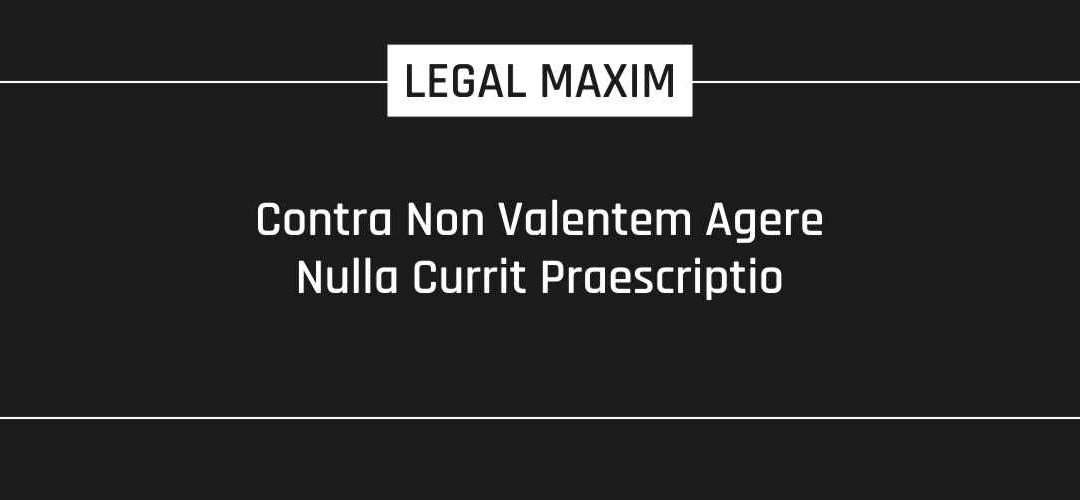Literal Meaning
No prescription runs against a person who cannot act
Origin
Latin
Explanation
This maxim provides that if the person cannot act, the prescription does not run against him. Accordingly, if a person is a minor and cannot file a suit to protect his rights, the prescriptive period only commences at his attaining majority. It is a legal principle that the statute of limitations is not applicable, or a prescriptive period does not begin to run, against a plaintiff where any legal cause has prevented a court or its officer from acting on a plaintiff’s action or when some condition associated with the litigation process prevented the plaintiff from acting or when the defendant has prevented the plaintiff from acting. The same cannot be applicable if the plaintiff is ignorant of the injury caused by the defendant and his/her ignorance is not due to negligence, unreasonableness or a wilful act. Under Indian law, this is provided in the Limitation Act, 1963.
Case Laws
In Ganda Singh and Others vs. Ram Narain Singh, it was held that during the continuance of the mortgage, Gujjar Singh, the nearest heir of the mortgagor could neither use nor otherwise enjoy the land under mortgage. Even if, there has been dispossession of the mortgagees by a stranger, that would not have been treated as equivalent to an adverse possession as against Gujjar Singh who during the pendency of the mortgage, was merely entitle to bare equity of redemption. Gujjar Singh, in view of the terms of this mortgage can well rely on the above maxim meaning prescription does not run against a party who is unable to act.
In Gunderao and Another vs. Venkamma and Others, it was observed that a woman governed by Hindu Law can, although she has no right of succession to it, prescribe either for a limited or for an absolute estate. This does not take us very far in the case before us in which the real question for determination is where a woman who is governed by Hindu Law has entered on an estate as a qualified heir, can she subsequently prescribe by adverse possession an absolute title to it, Where a Hindu widow governed by Hindu Law has entered on the estate as qualified heir, she cannot subsequently prescribe by adverse possession an absolute title to it. Reliance was also placed on the maxim ‘contra non valentem agerenulla currit praescriptio’, i.e., prescription does not run against a man during the time when he is unable to act, i.e., to take immediate possession.
